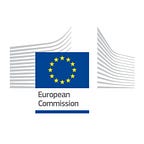World Health Day — 5 Facts
Every year on the 7th April, the world reflects on the importance of health and access to health care services.
Over 300 million people. That’s the number of people all over the world who are in need of humanitarian health assistance as a result of natural disasters and conflicts. The combined global trends of climate change and a growing and ageing population are making humanitarian health needs worldwide grow even faster.
Through its humanitarian aid department, the European Commission funds health interventions that seek to limit mortality, disability and disease associated with humanitarian crises.
How do we achieve this goal? Below are five things you need to know about global public health and the European Commission’s humanitarian health assistance.
1. Emergency health needs vary based on the context
During emergencies, the health needs of affected communities heavily depend on the context. For instance, in low-income or tropical countries, acute respiratory diseases, together with diarrhoea, maternal and neonatal conditions, malaria, tuberculosis, under-nutrition and epidemics, represent some of the most important causes of deaths and diseases. In certain contexts, mass violence is at times the first cause of mortality. Additionally, crisis situations also often have a significant impact on the mental health and psychosocial well-being of those affected.
2. Humanitarian health assistance is adapting to changing needs
Health is at the core of humanitarian aid interventions. At the same time, the health of a community also serves as the ultimate reference for measuring the overall humanitarian response to a crisis. Thus addressing health needs often involves coordination across other areas of humanitarian intervention. For example, addressing cholera involves both health and water, sanitation and hygiene.
Over the past decade, the European Commission has allocated an average of around €200 million on humanitarian health per year, which accounts for 20% — 30% of global humanitarian health funding.
The role of health in humanitarian settings is becoming more important every day. On one hand, this is due to the weakness of the health systems in many of the areas of humanitarian interventions, which cannot cope with the local needs. On the other, a growing range of services is now expected of health in humanitarian settings. For example, the frequency of chronic non-communicable diseases (like cardiovascular diseases, cancer and diabetes), together with the health risks associated with growing urban populations, poses new challenges to humanitarian aid interventions.
3. For the European Commission, coordination is key
The European Commission goes beyond simply funding humanitarian health responses. Its dedicated humanitarian health expertise ensures quality, promotes best practice, identifies and seeks solutions for ever-new challenges. We do this by improving coordination between and beyond humanitarian health actors.
We understand that if we want to achieve affordable, quality health interventions in humanitarian settings, we have to improve the way we work. Humanitarian health actors need to work together better to coordinate limited capacities in the face of growing needs.
The European Commission supports the Global Health Cluster, which comprises of all the main humanitarian health agencies, and has a key role in improving coordination across humanitarian health interventions.
4. Civil protection can complement humanitarian health assistance
To complement humanitarian health responses, the European Commission has extended its internal civil protection response capacity to provide increasing support in health emergencies both inside and beyond Europe. The key component for this is the European Medical Corps, which pools together health emergency assets, specialised medical teams and mobile laboratories that are ready to be deployed for any type of emergency with health consequences, at short notice and when needed.
5. Humanitarian health can lead the way to improved global health governance
Following the West African Ebola outbreak, the need for improved global health governance has become urgent. Humanitarian health has an important role to play in this. Humanitarian agencies are often the only health actors to detect and provide front line response for tens of millions of the most vulnerable people in the most difficult circumstances, where disease can thrive. Recognition of this vital role of humanitarians, and of the specific neutral and non-partisan nature of humanitarian actors that facilitates such access, is important to achieving an effective global health security and governance.
Learn more about what the Commission is doing in Health.
